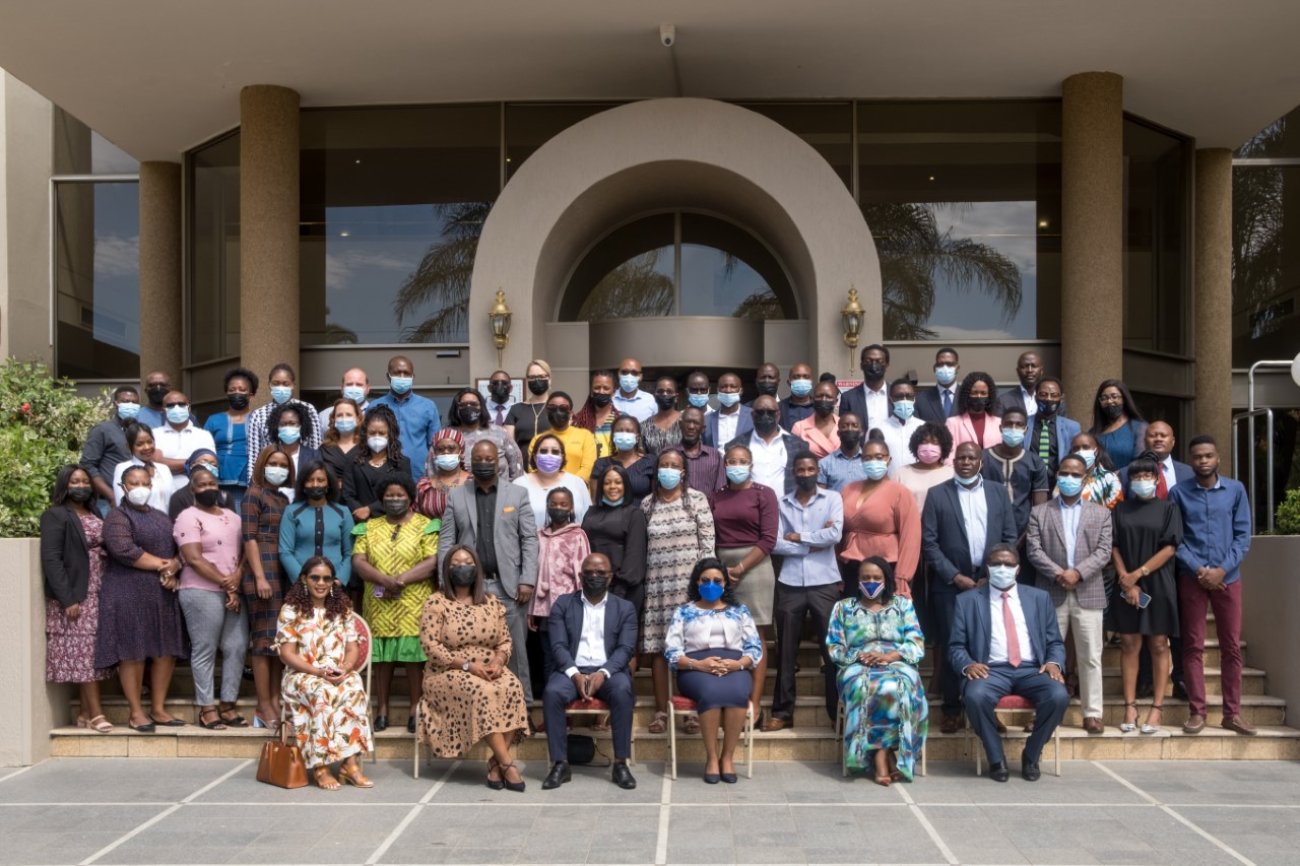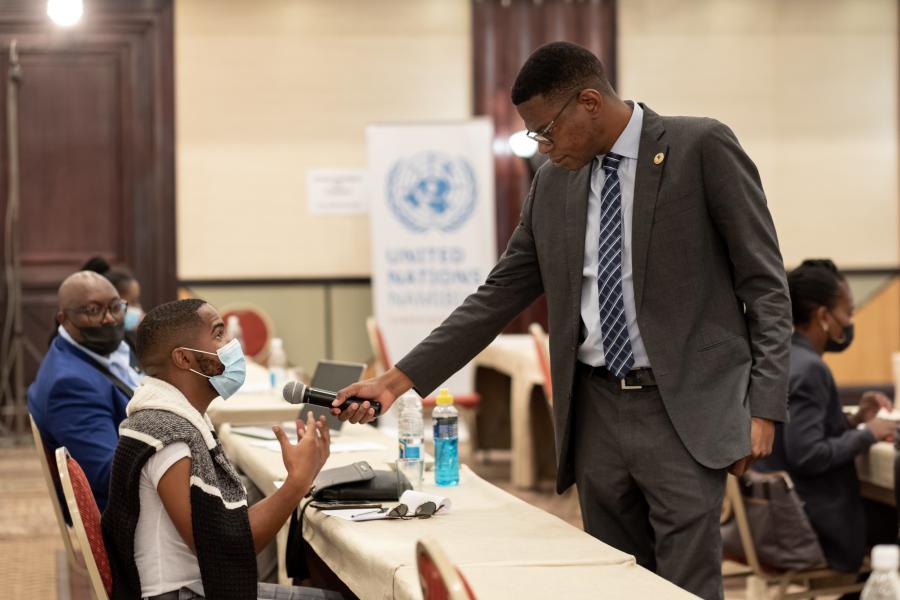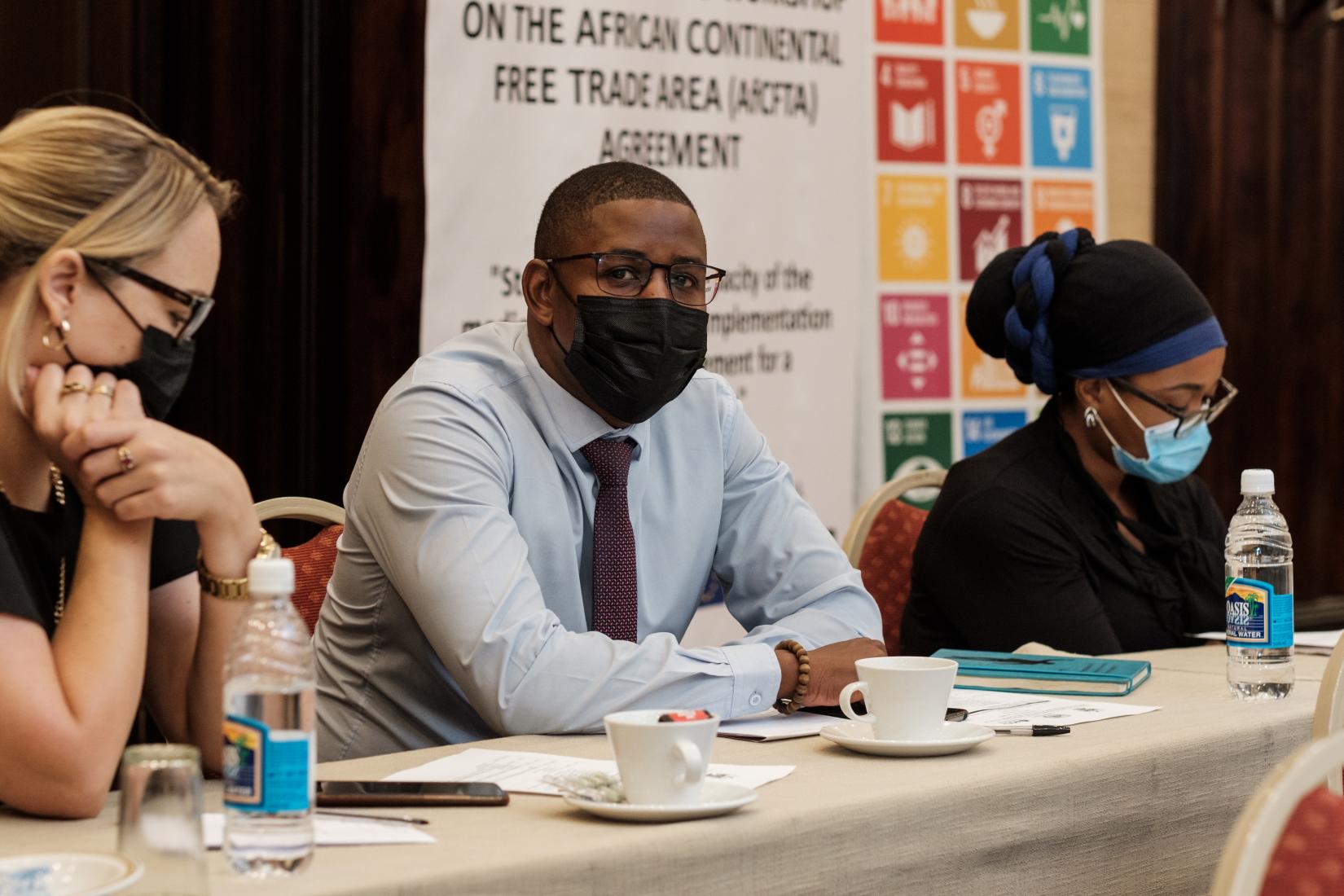Namibia makes Strides towards Intra-African Trade, at Workshop to Validate the National AfCFTA Implementation Strategy

Following a preparatory process that commenced in 2020, Namibia is finally validating the country’s AfCFTA Implementation Strategy at a 3-day workshop.
Namibia is set to benefit from the AfCFTA. Within the context of Government leadership and UN System-wide support to finalize Namibia’s: 1) Trade in Goods Policy; and 2) Trade in Services Policy, and the 3) Namibia National AfCFTA Implementation Strategy, the country can shape trade policy in a coherent, coordinated, and aligned manner. National AfCFTA strategies underpin the reforms necessary for smooth implementation of the Agreement to maximize national benefits.
Kickstarting the validation workshop was a Media Sensitization event, aimed at building the capacity for the local media to be able to report competently on the implementation of the agreement. As a key stakeholder, their understanding of the technical and operational issues on the AfCFTA Agreement is critical for disseminating information, and raising awareness, including for government, the private sector, cross border traders, government, civil society, women, youth across Namibia on the benefits, challenges and opportunities of the AfCFTA Agreement.
In her Opening Statement, the Deputy Minister, Honorable Verna Sinimbo, on behalf of Hon. Ms. Lucia Iipumbu, Minister of Industrialization and Trade (MIT), expressed that “We believe and anticipate significant opportunities will emanate from the implementation of the AfCFTA and this will lead to positive transformation of many African countries’ economies in the continent and as such, Namibia should prepare in order to take full advantages that the Continental Free Trade Area will bring. These include, larger market access, improved competitiveness, improved production capacities, improved living standard and possibility of employment creation.”
While the potential benefits to be gained from the AfCFTA are widely acknowledged such benefits will not come automatically to the Member States. It requires each Member States to develop a National Programme of Action to harness the benefits of the AfCFTA. The Namibia AfCFTA National Strategy and Action Plan will guide and drive implementation and will also enable the country to take full advantage of market access opportunities in the continent.

Calling upon participants to domesticate the AfCFTA, Ms. Charity Mwiya, CEO of the Namibia Chamber of Commerce and Industry noted that “it has been agreed that at the national level, it will be critical to have an AfCFTA strategy and dedicated institutional arrangements in place to carry out implementation and fully utilize the opportunities of AfCFTA. The strategy will assist State Parties with domesticating implementation. The Strategy will be complementary to the broader trade policy of each respective State Party – that identifies for that particular country the key trade opportunities, current constraints, and steps required to take full advantage of the continental African market.”
Representing the UN at the Opening session, Ms. Isatou Gaye, the Chief of Subregional Initiatives, speaking on behalf of Ms. Eunice Kamwendo, Director at the UNECA Sub-Regional Office for Southern Africa expressed “the UN System in Namibia continues to partner with the Government in the implementation of the AfCFTA through active contribution to the substantive review of the Draft National AfCFTA Strategy. Recent support has included through the Socio-Economic Recovery Plan (SERP), in response to COVID-19; convening of consultations towards the AfCFTA Protocol on Women in Trade; and Capacity Building for officials of the National Planning Commission (NPC) on Strengthening AfCFTA Implementation for the SDGs and Trade Policy Development in Namibia. The United Nations remains committed to providing technical support to African Union member States in developing and rolling out the national AfCFTA implementation strategies and in addressing development challenges.”

The workshop reviewed the draft national AfCFTA strategy and implementation plan in terms of the content, the objectives, proposed actions and the implementation framework to address any gaps, correct any misrepresentations and align any inconsistencies to improve the national strategy and implementation framework. It also reviewed the proposed Terms of Reference for the National AfCFTA Committee to ensure that they provide a solid foundation for the required leadership for the AfCFTA Agreement in Namibia.
It ended with a roadmap towards finalization of the Strategy including incorporation of comments from stakeholders, approval, and the National Official Launch aimed at implementation.
For additional information, contact:
- Ms. Ndiitah Nghipondoka-Robiati. Deputy Director, Trade & Commerce, Ministry of Industrialization and Trade (MIT). (Ndiitah.Robiati@Mit.gov.na)
- Mr. Oliver Maponga, Economic Affairs Officer, United Nations Economic Commission (UNECA) Sub-Regional Office for Southern Africa (mapongao@un.org)
- Ms. Eunice Ajambo, Economist & Development Coordination Officer—UN Namibia (ajambo@un.org)





